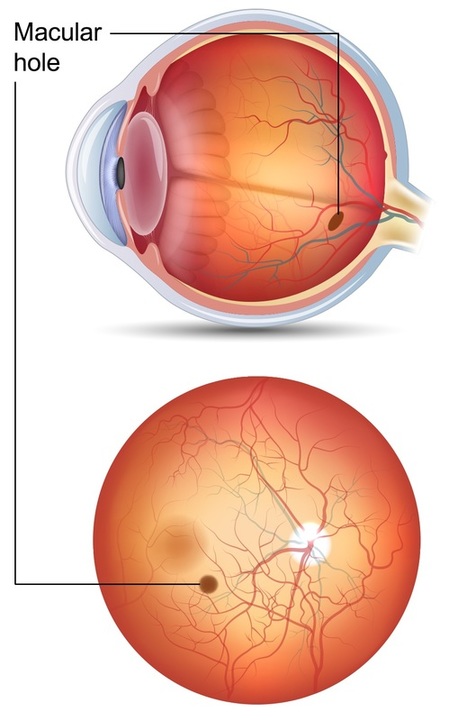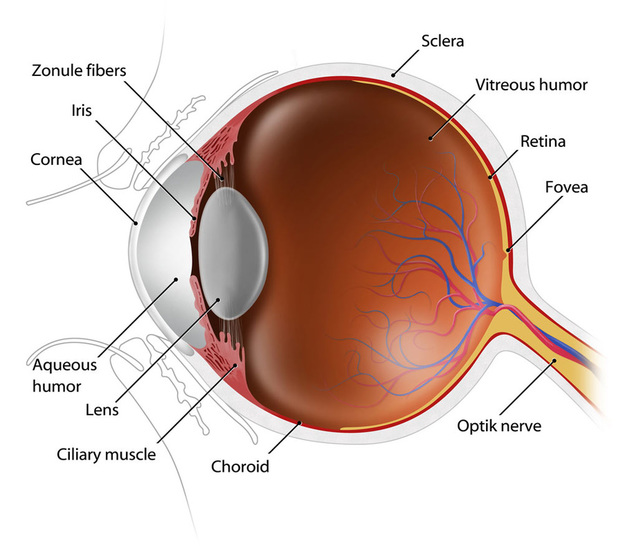|
To understand macula holes, it's first important to understand what the macula is and what it does.
The macula is the small central portion of the retina, the light-sensitive tissue located at the back of the eye. The retina receives light signals and sends them to the brain, making the retina crucial for proper vision. The macula in particular is full of light-sensitive cells known as cones, whereas the rest of the cornea contains cells known as rods. Macula holes refer to tears and small breaks in the macula, which result in changes to your overall vision quality. There are three stages of macula holes, categorized in terms of extent:
CausesMacula holes are often associated with shrinkage of the vitreous gel within the eye. This gel can attach to and peel at part of the retina, causing holes and other kinds of retinal damage in some cases.
|
Risk Factors
Some risk factors for developing macula holes include the following:
- Diabetes and related eye disease
- High degree of nearsightedness (myopia)
- Macula pucker
- Retinal detachmment
- Previous eye injury
- Best's disease
Warning Signs and Symptoms
ommon signs and symptoms of macula holes include:
- Blurriness in central vision
- Distortions in central vision
- Waviness or bending in objects that should appear straight
- Difficulty reading


